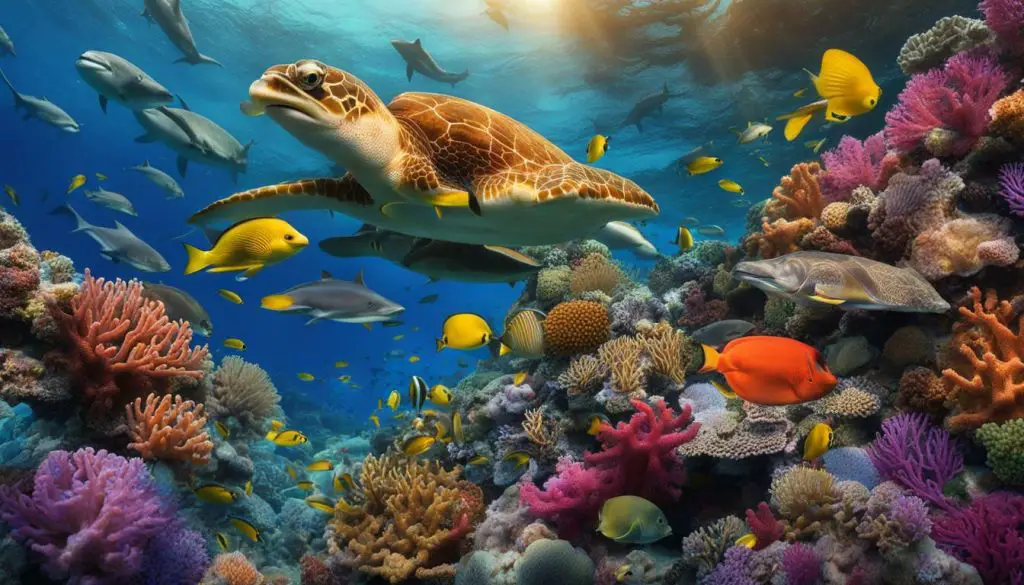Hello friends
With great enthusiasm, let’s explore interesting topics related to Marine Fish Conservation Success Stories: Restoring the Balance. Let’s take a good look at the following information so that our insight increases and opens our minds further.
Marine Fish Conservation Success Stories: Restoring the Balance
The health of the world’s oceans is closely tied to the well-being of marine fish populations. Overfishing, habitat destruction, and climate change have all taken a devastating toll on marine ecosystems, threatening the very foundation of our planet’s biodiversity. However, amidst the dire predictions and alarming statistics, there are stories of hope and resilience. This article explores the incredible journey of marine fish conservation success stories, highlighting the efforts of individuals, organizations, and governments working tirelessly to restore the balance of our oceans.
1. The Revival of the Striped Bass (Morone saxatilis)
One of the most remarkable success stories in marine fish conservation is the recovery of the striped bass. Once commercially overfished, this iconic species was on the brink of collapse by the 1980s. However, a concerted effort by fishermen, scientists, and regulators led to the closure of striped bass fisheries and the implementation of catch limits. These measures have allowed the striped bass population to recover, with numbers increasing by over 200% since the 1980s.
2. The Blackfooted Dolphin’s Sanctuary (Tursiops truncatus)
In the Mediterranean Sea, the French government established a protected area for the endangered blackfooted dolphin. By creating a safe haven, fishermen have been able to coexist with these charismatic creatures, and the population has shown signs of increase. This initiative not only highlights the importance of marine protected areas but also demonstrates the potential for human-dolphin collaboration.
3. The Bahamas Reef Action Program
The Bahamas Reef Action Program (BRAP) has been instrumental in protecting the country’s coral reefs and marine life. Since its inception in 1995, BRAP has undertaken numerous coast cleanup initiatives, marine conservation projects, and workshops. The program has resulted in the recovery of dive sites, the protection of native species, and the establishment of community-led environmental actions.
4. The Turtle Conservation Project (Cheloniidae spp.)
Around the world, conservation efforts for sea turtles have shown remarkable results. In the Mediterranean, the Sea Turtle Rescue and Rehabilitation Center in Turkey has rehabilitated over 10,000 turtles, releasing them back into the wild. In the Pacific Northwest, conservation groups have implemented beach cleanup programs and established marine protected areas to safeguard turtle nesting sites. As a result, turtle populations have begun to recover, and humans have learned to coexist with these majestic creatures.
5. The Indian Ocean Reef Reefs Conervation Alliance (IORCA)

IORCA is a collective of organizations, governments, and local communities working together to protect coral reefs in the Indian Ocean. By implementing sustainable fishing practices and raising awareness about reef conservation, IORCA has seen a significant decline in reef damage and an increase in overall biodiversity. The project’s success is a testament to the power of collaboration and community-led conservation.
6. The Marine Stewardship Council (MSC)
The Marine Stewardship Council (MSC) is an international program that promotes sustainable fishing practices. By certifying fisheries that meet rigorous standards, the MSC encourages sustainable fishing and allows consumers to make informed choices. With over 120 certified fisheries worldwide, the MSC has played a pivotal role in promoting responsible seafood production and reducing the environmental impact of fishing.
7. The European Eel Conservation Project
8. The United Kingdom’s Marine Conservation Society
In the UK, the Marine Conservation Society (MCS) has been at the forefront of marine conservation. Establishing the "Taste of Tradition" campaign, MCS has encouraged the consumption of sustainable seafood and raised awareness about the impacts of overfishing. Additionally, the organization has implemented coastal monitoring programs and partnered with local fishermen to promote sustainable fishing practices.
9. The Australian Shark Monitoring Program
A decade after implementing a national shark protection program, Australia has seen a significant reduction in shark fatalities. By analyzing shark behavior and movements, scientists have been able to develop effective conservation strategies. Furthermore, educating the public about shark conservation and promoting safer beach practices has contributed to a more harmonious coexistence between humans and sharks.
10. The Norway’s Ocean Salmon Management Plan
In Norway, the government implemented an integrated management plan for ocean salmon, focusing on habitat restoration, catch limits, and research. By understanding the salmon population dynamics, Norway’s plan has seen significant strides in marine recovery and minimized economic costs associated with overfishing. Moreover, local fishermen, NGOs, and policymakers have extensively collaborated, resulting in thriving fish populations and viable businesses.
Lessons Learned and Future Directions
Despite these remarkable success stories, the road ahead for marine conservation remains fraught with challenges. Habitat degradation, climate change, and pollution continue to imperil our oceans. However, we can draw essential lessons from the conservation successes outlined above:
- International collaboration: Successful marine conservation often requires the collective effort of governments, businesses, NGOs, and local communities.
- Indo-Binding: Sustainable fishing practices, as well as reduced waste and bycatch, are crucial in restoring the balance of marine ecosystems.
- Conservation through Innovation: Embracing cutting-edge technology and research can unlock answers to the most pressing marine issues.
- Education and Empowerment: Direct engagement with fishing industry stakeholders and fostering in-country solutions are vital to long-term success.
- Policy Support and Enforcement: The presence of strong conservation laws, coupled with diligent enforcement, help shore up momentum in the face of environmental challenges.
Closing
Thus, we hope this article can provide you with valuable insight into Marine Fish Conservation Success Stories: Restoring the Balance. We are very grateful for your attention to our articles. Don’t forget to visit this simple blog again to read other articles about unique, cool and extraordinary information. May you all always be given: A blessed age, Physical and spiritual health, and smooth sustenance, amen.
EmoticonEmoticon